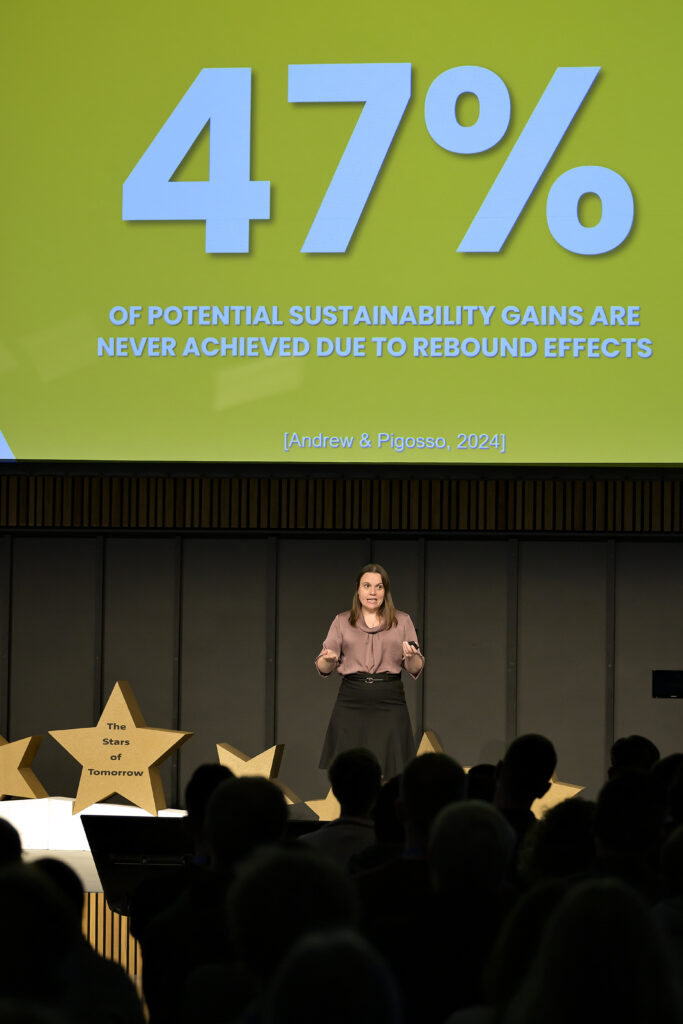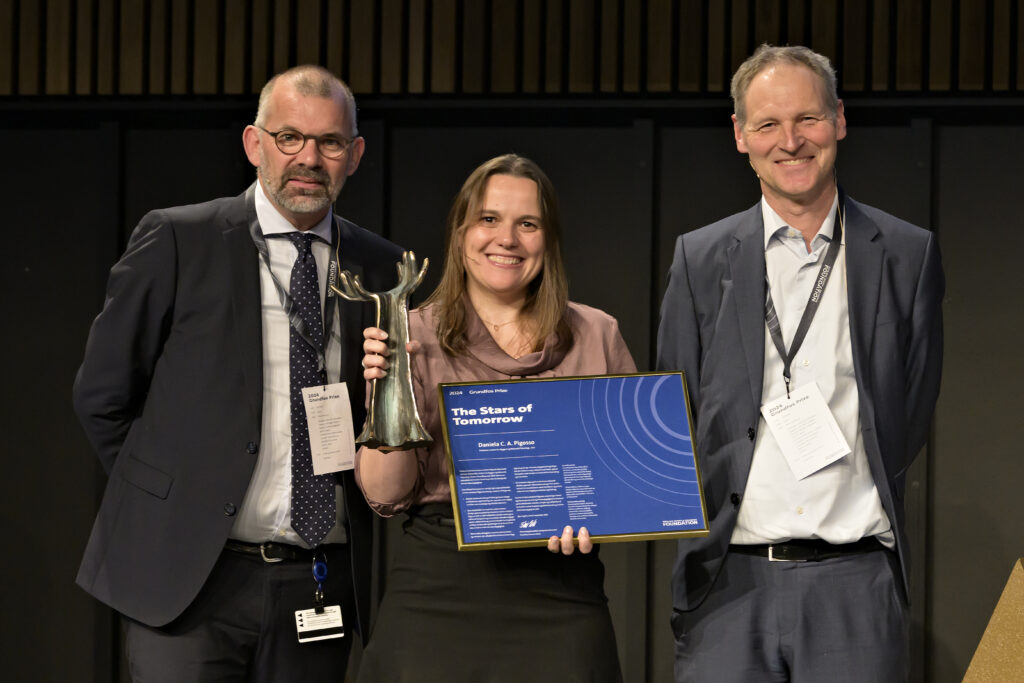Ever since she became aware of man’s role in the destruction of the Amazon rainforest as a high school student in Brazil, DTU professor Daniela Pigosso has been passionate about sustainability.
During her first years studying environmental engineering at the University of Sao Paulo, a frustration grew inside her that made her want to do more than just mitigate environmental impacts: She wanted to investigate the underlying causes in order to prevent them from happening.

Daniela Pigosso has dedicated her professional life to ensuring that sustainable innovations contribute to sustainability. For her efforts, she has been awarded this year’s Grundfos Prize. Photo: Lars Holm
Throughout her working life, Daniela Pigosso has discovered that sustainability initiatives can end up leading to increased environmental impacts if changes in consumption behavior are not properly addressed.
For example, when people’s houses are better insulated, residents may end up turning up the heat and just walking around in t-shirts, ultimately not reducing energy consumption. These unintended consequences of consumption and production are called rebound effects.
“Rebound effects undermine about 47% of all potential gains from sustainable technologies, products and systems,” explains Daniela Pigosso, who received this year’s Grundfos Prize for her research.

“Rebound effects undermine about 47% of all potential gains from sustainable technologies, products and systems,” explains Daniela Pigosso. Photo: Lars Holm
Multidisciplinary approach
But how do we ensure that green solutions don’t do more harm than good? This is what Daniela Pigosso is investigating in the Reboundless project, funded by the European Research Council, in collaboration with an multidisciplinary team of engineers, system modelers and social scientists.
The project is a natural extension of her work over the past 15 years, where Daniela Pigosso has actively helped more than 900 companies in Denmark and abroad, large and small, to transition to sustainability through better design.
From Left: Foundation CEO Kim Nøhr Skibsted, Professor Daniela Pigosso, and Foundation Chairman Flemming Konradsen. Photo: Lars Holm

From left: Foundation CEO Kim Nøhr Skibsted, Professor Daniela Pigosso, and Foundation Chairman Flemming Konradsen. Photo: Lars Holm
She has also mentored thousands of students and was instrumental in increasing the focus on sustainability in DTU’s BSc in Design and Innovation.
Explain, simulate and prevent
The potential sustainability benefits of new innovations will never be realized unless the unintended consequences are prevented early in the design phase of the development of new products, technologies and systems, she explains.
The Reboundless project focuses on mitigating rebound effects across four societal needs: housing, nutrition, consumer goods and transportation. Together, these four categories account for ¾ of the world’s total CO2 emissions.
“In addition to simulation models that can effectively estimate rebound effects, preventing them requires a paradigm shift in design,” says Daniela Pigosso.
Text: Nasrin Bille
Watch the 2024 Grundfos Prize Lecture
Dive into Daniela Pigosso’s research below – or check out the highlights from the prize ceremony.

